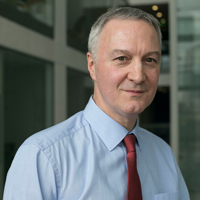Conduct original clinical, applied or fundamental studies in vision research under the supervision of world leading experts at the Centre for Applied Vision Research at City, University London.
Research centres and groups
Key information
| Starting date | Deadline for application |
|---|---|
Duration
Affiliations


Our links with Bart's Trust, UCL Partners and others has helped create research-active clinical academic posts, ensuring research is undertaken under the supervision of respected clinical experts.
Applied Vision Postgraduate research degrees PhD/MPhil course Overview
Our PhD programme provides perfect foundation for practising optometrists who want to add an academic strand to their work, and for scientists with backgrounds in a variety of disciplines who want to further their career in academia, industry or public health.
You will pursue original research under the supervision of our expert multidisciplinary research staff who specialise in: visual neuroscience, psychophysics,ocular optics and instrumentation, measurement techniques in vision, and ophthalmic public health.
You may have the opportunity to develop scientific understanding of the causes and consequences of various visual impairments(e.g. glaucoma, macular disease, colour deficiencies), via our state-of-the-art City Sight laboratories and clinics and established links with eye-care practitioners, such as nearby Moorfields Eye Hospital.
Structure
Degree Pathway
A range of Masters level courses are offered at the School of Health & Psychological Sciences, including an MSc in Clinical Optometry, with other courses tailored to each of the Research Centres.
Study for an MPhil/PhD
Doctoral level study involves independent academic research, supported by supervisors, that makes an original contribution to knowledge within the discipline.
The work carried out will therefore be of sufficient quality to satisfy academic peer review and merit publication.
There are two main routes to doctoral-level research degrees (PhD):
MPhil/PhD by major thesis
The standard route involves the accepted candidate pursuing a research project under the guidance of their supervisors over a period of 3 years (full-time) or 4-6 years (part-time).
Candidates register initially for an MPhil (which is a substantial and valid qualification in its own right), and following an Upgrade examination, transfer to the PhD programme.
MPhil/PhD by prospective publication
Candidates publish generally around 3-6 peer-reviewed research papers (dependent on their depth, quality, significance and impact) addressing various aspects of their research topic during the period of MPhil/PhD registration.
For the award of PhD, the published studies are incorporated in an extended, analytical commentary (not dissimilar to a major thesis), which presents them as a coherent body of work, places them in a more general context and shows how they form a coherent contribution to knowledge in the research field.
For full details about the City PhD programme structure, please see the Guide for Research Students.
Requirements
Entry requirements
Entry requirements vary by subject area, so applicants should approach academic staff working in their area of interest to discuss their proposal ahead of, submitting an application.
Applicants should preferably hold a Masters degree (with Distinction or Merit) in a relevant discipline and have past experience of research or professional expertise in their area of interest, with an upper second class honours degree or the equivalent from an international institution in a relevant discipline normally being a minimum requirement.
Where an applicant's academic profile shows no evidence of training in research methods, it may be recommended that they first complete an MSc or MRes programme to prepare them for MPhil/PhD studies.
For our Clinical MRes programme, applicants must be registered with a clinical professional group such as Medicine, Optometry or other Allied Health professions.
For more information see our main entry requirements page.
English requirements
For applicants whose first language is not English, an IELTS score of at least 7 (with a minimum of 7.0 in writing) is required.
Visa requirements
If you are not from the European Economic Area / Switzerland and you are coming to study in the UK, you may need to apply for a visa or entry clearance to come to the UK to study.
The way that you apply may vary depending on the length of your course. There are different rules for:
- Students on courses of more than six months
- Students on courses of less than six months
- Students on a pre-sessional English language course.
For more information see our main Visa page.
Fees and funding
Full-time Home/UK:£5,000 per year
Part-time Home/UK:£2,500 per year
Full-time International:£13,500 per year
Part-time International:£6,750 per year
Fees for doctoral candidates are charged annually and cover registration, supervision and examination.
Fees are subject to review each year and may vary during your period of registration. Where applicable, fees for City's programmes will be subject to inflationary increases in each academic year of study commencing in September. Our policy for these increases is set out in our terms and conditions of study.
There are multiple funding options at City to help support your studies.
Support for PhD study
Prospective students are encouraged to explore doctoral Grants and funding opportunities such as:
- NIHR and MRC Fellowship schemes
- Commonwealth Scholarships
- Specialist scholarship schemes (such as those provided by Arthritis UK, Diabetes UK, and the British Heart Foundation)
- Research Council studentship awards, if available.
Our bursaries are non-repayable sums of money granted by the University, usually based on need.
Our loans are repayable sums of money granted by the University or other body.
Our scholarships are when the University pays towards your Study fees. You may also be eligible for further funding.
Postgraduate Doctoral Loans
The Government has introduced a new Postgraduate Doctoral Loans scheme which can provide a loan of up to £25,000 over three years to support study for a doctoral degree.
A Postgraduate Doctoral Loan can help with course fees and living costs while you study and can be used alongside any other forms of support you may be able to receive, for example from industry or business or through your PhD supervisor.
For more information, please see our Postgraduate Doctoral Loans page.
Additional expenses
Some of our degrees may involve additional expenses which are not covered by your tuition fees. Find out more about additional expenses.
Academic support
City has a well-established structure and processes to support your research.
Supervision
MPhil/PhD students can become integral members of the School’s research teams based in their Research Centres, which assists students in completing their studies.
MPhil/PhD students are assigned to a team of supervisors, usually two academics who are expert in the field of the student's study.
Students meet regularly with supervisors, reviewing their learning needs and planning work towards progression. Full-time students have access PhD office area in the SHPS building.
Full time students will also meet with their supervisors at least twice a term and part time students at least once a term.
Progress is monitored by an annual review, where students have the opportunity to discuss their research design and written work with an advisor.
All students working towards a PhD initially register for MPhil studies. When their study has developed, they may apply to be upgraded to PhD student status which involves an oral examination.
Research students are supported by student representatives who meet with the student-staff liaison committee responding to any student concerns that cannot be addressed by supervisors.
Research students are also supported by Senior Tutors of Research who are members of Academic Staff who have central roles of overseeing research degrees provision at Research Centre level, including liaising with Supervisory teams to facilitate student progression on the PhD programme.
Training
All MPhil/PhD students can access a wide range of MSc modules and other training programmes (e.g., for teaching) across City, normally without charge.
Workshops, seminars and retreats are organised for students across the School and within particular areas.
Institution-wide research activities can also contribute to your development as a researcher. An annual programme of research and enterprise development activities is also run by and for students, including a one-day Doctoral Conference, at which students are able to present their work to each other and to Academic Staff in the School of Health & Psychological Sciences.
For more information, please see the visit the City Doctoral College.
How to apply
You will need to submit a formal online application with a curriculum vitae and a 1-2 page proposal of study. This should include:
Background and rationale of research proposal including other work in the area leading up to the PhD study.
Proposed methodology such as aims, design, participant groups, measures, analysis.
Potential research outcomes in the form of academic outputs (papers and presentations) and real-world impact (e.g., its potential usefulness for optometric practitioners, patient groups, clinical managers and stakeholders, etc.).
See here for guidance on writing your research proposal.
We realise that at this stage you may not have a completely clear plan of study, and that the proposal is likely to change after you begin study. The proposal gives us an idea of your writing and organisational ability, motivation and rationale for the study and potential wider benefits.
Apply now
Optics & Visual Science
-
Select one of the available starting dates to start your application.
-
Select one of the available starting dates to start your application.
Optometry
-
Select one of the available starting dates to start your application.
-
Select one of the available starting dates to start your application.
Visual Science
-
Select one of the available starting dates to start your application.
-
Select one of the available starting dates to start your application.
Apply now
Optics & Visual Science
Full-time
Part-time
Optometry
Full-time
Part-time
Visual Science
Full-time
Part-time
For further application enquiries please contact our PGR enquiries team.
PhD projects from SHPS
Find a supervisor
See our full list of academic staff and potential supervisors in Department of Optometry and Visual Sciences.

Dr Marisa Rodriguez Carmona
Senior Lecturer
Department of Optometry and Visual Sciences

Dr Simon Grant
Reader
Department of Optometry and Visual Sciences

Professor Chris Hull
Professor
Department of Optometry and Visual Sciences

Dr Alison Binns
Reader in Optometry & Visual Science
Department of Optometry and Visual Sciences
